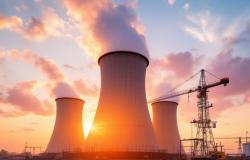Africaa continent bathed in sunshine, has exceptional solar potential that is still largely untapped. This abundant natural resource represents a promising solution to the continent’s persistent energy challenges. Traditional electricity infrastructures, often aging and insufficient, struggle to meet the growing demand of a rapidly expanding population. Thermal power plants, dependent on imported fossil fuels, no longer ensure stable and continuous power supply, causing recurring outages which affect both individuals and economic activity.
A pharaonic project for sustainable energy
Egypt has just taken a major step in its energy transition with the inauguration of a monumental photovoltaic solar power plant in Aswan. This major project, developed by the company AMEA Power of Dubairepresents an investment of 500 million dollars. The Abydos power plant, whose construction was completed in just 18 months, displays an impressive capacity of 500 megawatts. This installation produces annually 1,500 gigawatt hours of green energy, powering 300,000 Egyptian homes while avoiding the release of 782,300 tonnes of CO2 into the atmosphere. The choice of Aswan as a location is not a coincidence: the region benefits from optimal sunshine throughout the year, providing ideal conditions for solar energy production.
An energy revolution in progress
This new plant considerably strengthens the Egyptian solar arsenal, which already includes the Benbana major 1,650 megawatt installation commissioned in 2019. The Egyptian government does not intend to stop there: an agreement has just been signed with AMEA Power for the construction of a 500 megawatt wind farm in Ras Shukeir, on the shores of the Red Sea, representing an investment of 600 million dollars. These ambitious initiatives reflect the the country’s determination to modernize its energy mix, with the objective of increasing the share of renewable energies to 42% by 2030, compared to 11.5% currently. This radical transformation of the Egyptian energy landscape provides a concrete response to the electricity shortages which particularly affected the country during heatwave periods, forcing the population to endure up to three hours of daily outages during last summer. The project benefits from financial support from major international institutions, including the International Finance Corporation, the Netherlands Bank FMO and the‘Japanese agency of international cooperation, demonstrating the growing attraction of investors for renewable energies in Africa.
News





